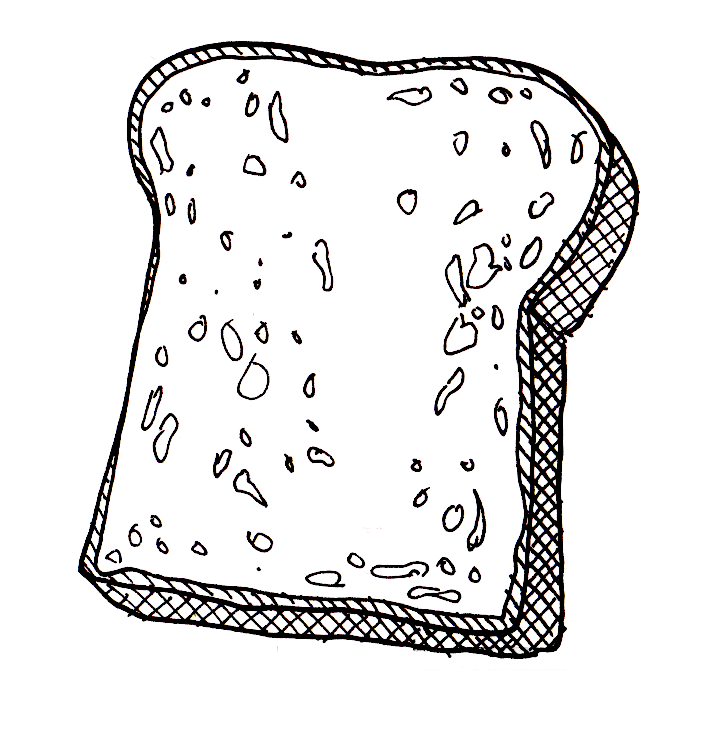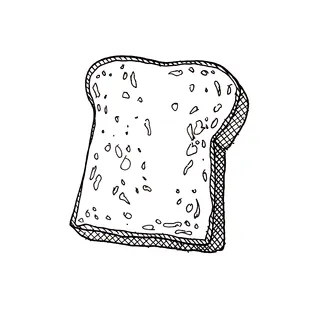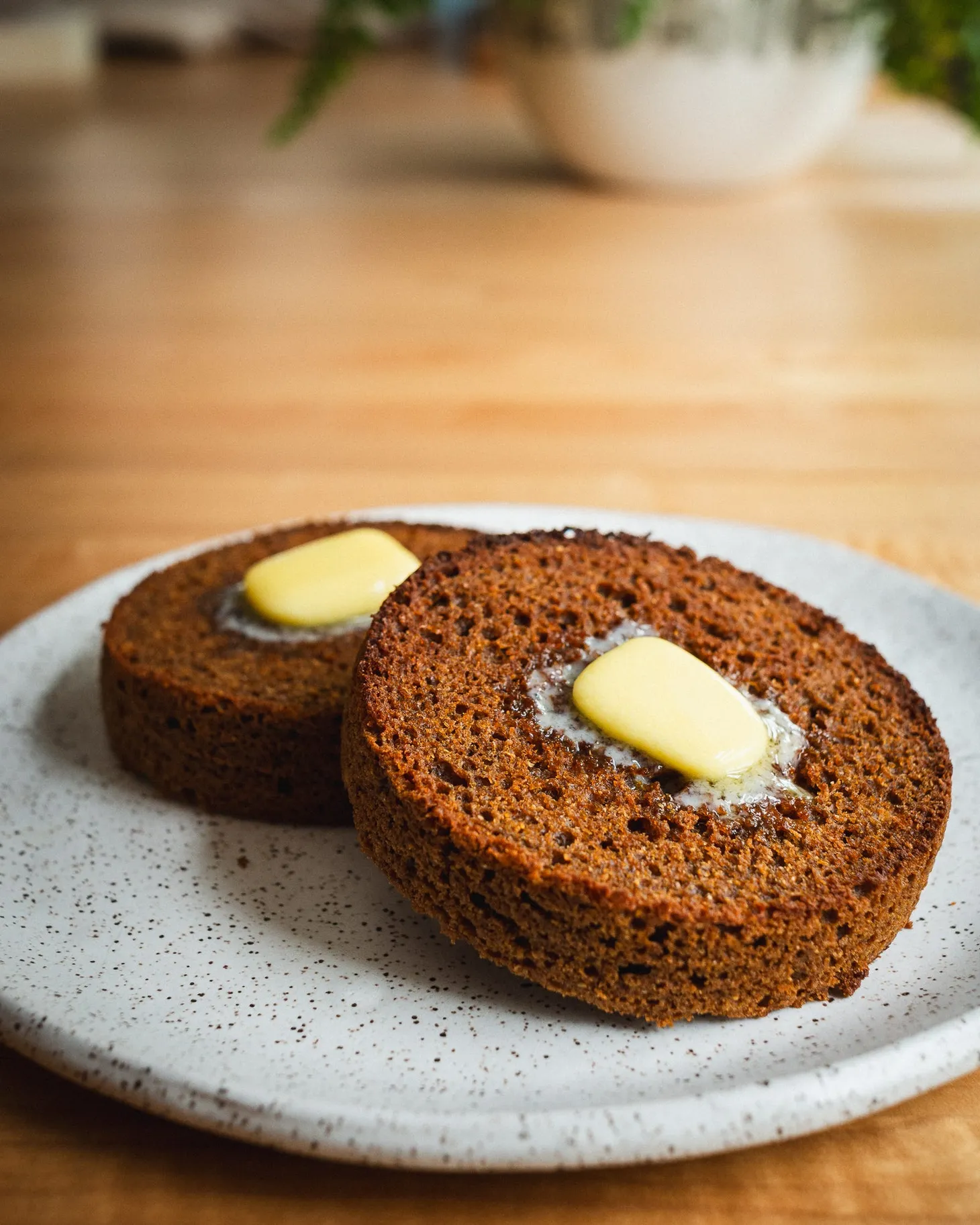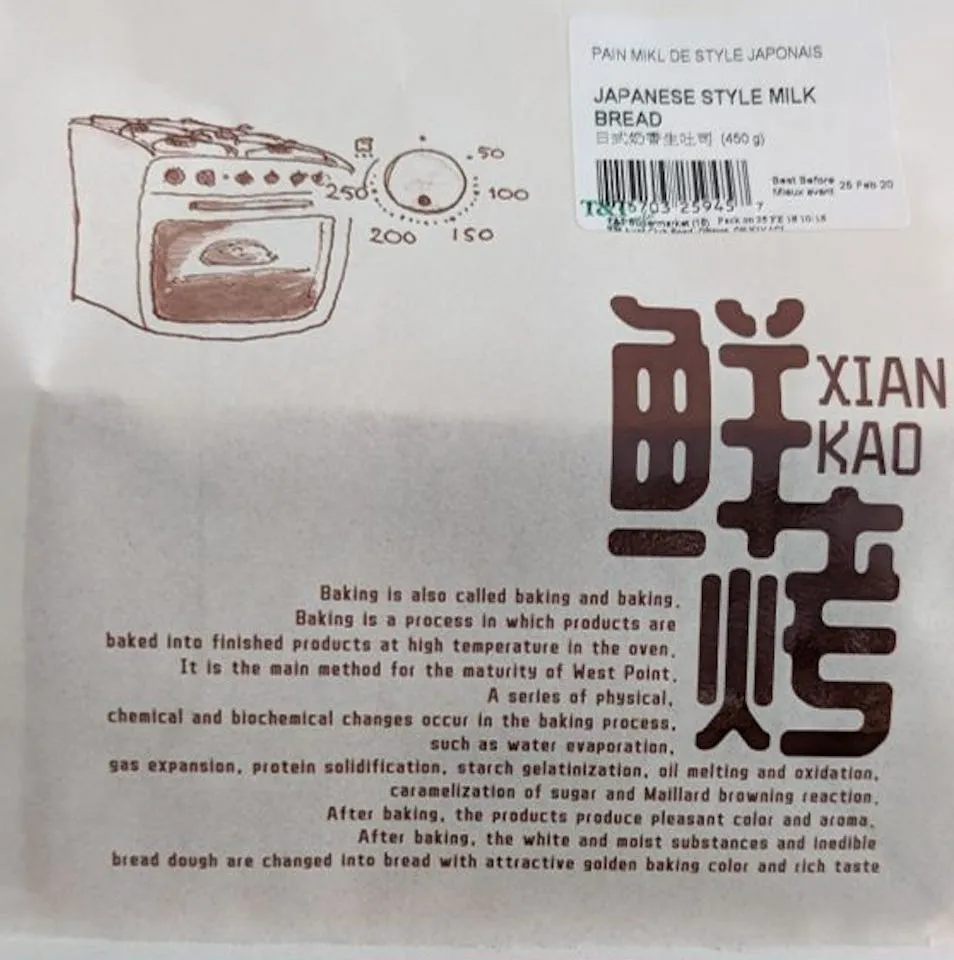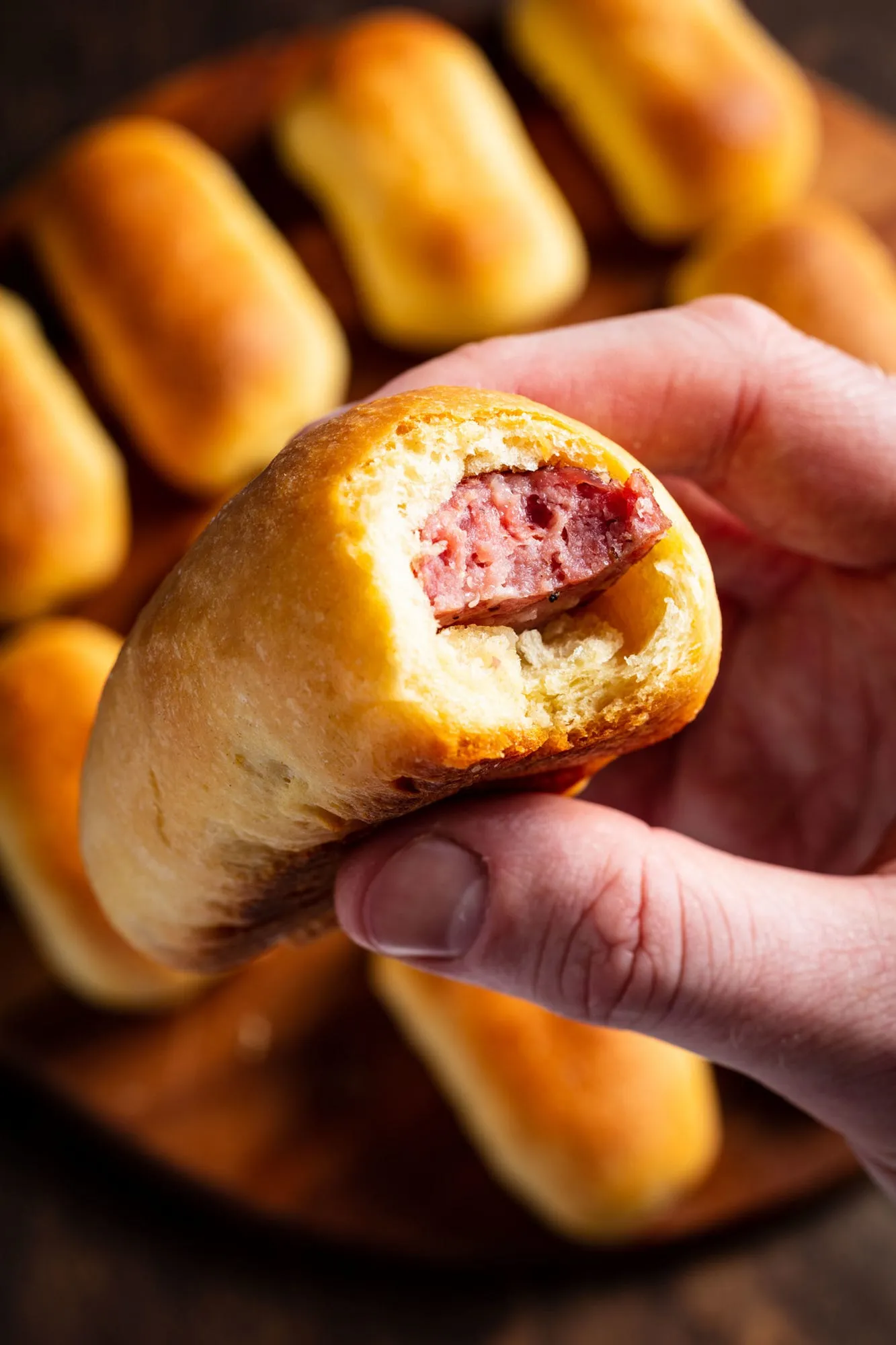Triple-A Flour Power Hour
a conversation with Alicia Kennedy and Amy Halloran
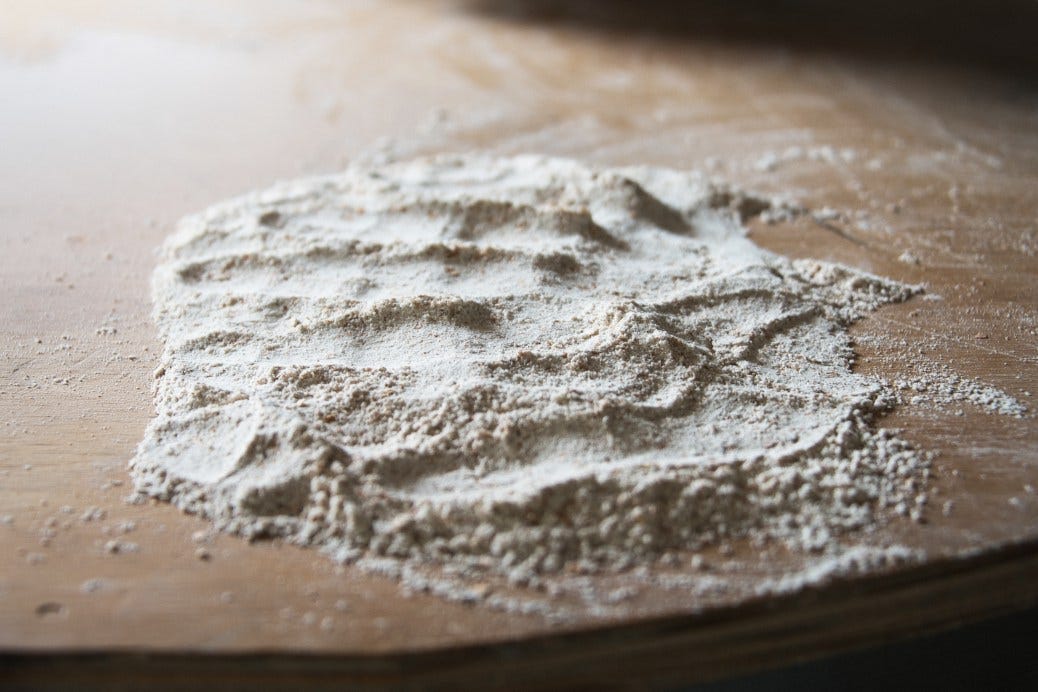
Table of Contents
A few weeks ago, I invited my friends Alicia Kennedy and Amy Halloran to join me in a discussion about our relationship to flour as an ingredient. The idea arose as a way to begin to answer a question I’ve been grappling with for awhile, namely whether refined/white flour is a “problematic” ingredient in baking, but our conversation quickly expanded beyond that starting point. Neither Amy nor Alicia should need an introduction, especially around here, but:
- Alicia Kennedy is a writer from New York based in San Juan, Puerto Rico, who writes a weekly newsletter on food culture, politics, and media, From the Desk of Alicia Kennedy. She also hosts a weekly podcast interviewing prominent people in the food world (and beyond) on their relationship to food and cooking. Her book on the cultural and culinary history of plant-based eating in the U.S. will come out in Summer 2023 from Beacon Press.
- Amy Halloran, better known to many as The Flour Ambassador, is a writer from Troy, New York, who writes the newsletter Dear Bread, on bread, grains, food history, and social justice. She’s also the author of The New Bread Basket: How the New Crop of Grain Growers, Plant Breeders, Millers, Maltsters, Bakers, Brewers, and Local Food Activists Are Redefining Our Daily Loaf.
I hope you’ll find this conversation as interesting as I did, and you’ll forgive its length (we had a lot to say on the subject, it turns out!). I pulled out some of the key quotes below, but I think it’s worth reading in full.
—Andrew
Andrew Janjigian: I don't exactly know where to begin, but two things that I wrote down as starting points were items that came across my feed this week. One of which has to do with you directly, Alicia, and that’s the conversation you had with Siobhan Phillips, about sugar and her new book, [Benefit]. It was interesting to me to think about whether any of the things that you two discussed in relation to sugar could somehow be applied to our conversation about flour. And then the other one is the new Bon Appetit junk food mega-story.
Is white flour “junk food”? Or is there more to it than that? Is it more useful to us, even if it has a lot of the things we consider nutrition taken out of it? Does it have more value than a bag of chips does relative to a bowl of brown rice? I want to get at the question of how we can support the idea of whole grains, whole grain flours, and quote-unquote “ethical flours,” whatever that means, without without denigrating white flour or without denigrating the people that choose to use white flour, or don't have the option to use anything other than white flour, whether it's because they live in Puerto Rico, or because they don't have the resources to buy flour from a boutique mill.
Alicia Kennedy: One of the things I was talking about with Siobhan in that interview, we were talking about sugar, but I think it's also the thing about wheat and I kind of hit on it in a different newsletter, If flour from wheat is a thing that has basically been brought everywhere through colonization, and people get so used to it and make things out of it, then what are we supposed to do with that? Because when people say, “Oh, you should only use whole grains, blah, blah, blah,” they're basically saying most of the planet doesn't get to eat a baguette ever again. And that's that's the challenging idea for me, because I don't think that that's fair. Of course we need to be conscious of where things come from and how much of them we use. But you can't just say that huge swaths of the planet that have become accustomed to making European-style breads because of colonization don't get to ever eat them again. Or even if they're not eating them because of colonization, and they're just eating them because this is the culinary culture that has colonized the world.
What are you saying? It's like telling someone you're not allowed to eat soy sauce, because it comes from over there. It's so weird, right? And I understand it, but at the same time, you know, it would be also be telling someone in Canada, they can't use sugar, because it doesn't grow there. Of course, we should be using more ingredients local to where we are. And we should be figuring out how to be a good steward of our local ecosystem through how we cook and what ingredients we use. But at the same time, there are certain things that are just we're kind of stuck with, it seems. And so how do we do the best with what we're stuck with?
Amy Halloran: Yeah. I think about not just the shaming the baguette or shaming the bread traditions that have developed around white flour, but whether you look at flatbreads or Greek pastries, it's a reliance on a sifted white flour that's universal. Flour is really complicated, because it is such a global thing, and because it was commodified earlier on because you could [easily] transport grain. And so we've got so many advances. I think about the differences between sugar and flour a lot. There's a great book about the second slavery—[The Reinvention Of Atlantic Slavery, by Daniel B. Rood]—and how technologies around sugar plantations, wheat plantations, and coffee plantations really grew the food system in the 1830s 40s, and 50s. And so we can't really separate them out, although we tend to.
I've had people criticize me like, “Well, you care about flour, but not sugar?” Yeah, I do care about sugar, and I also care about dairy. And I care about milk. And there's a million choices that I don't make, because I am a writer and not a writer with gigantic book contracts. When I did the Flour Ambassador campaign, it was to try to have a shorthand to get people to understand that, in a process that that most people don’t understand how it happens, because most farmers don't go direct to farmers markets.
They have to see that mills are the important thing—make more mills happen so that farmers have more choices. And if I think about it, like, who do I want it to have more choices? I'd rather have farmers had more choices first than me as an eater. I am very happy with getting the flours that I do, but I'd be much happier to have farmers have the opportunity to grow for value added markets, to grow for a good mill. That's more important, because then I think that we can begin to change the wheel of food, if all the way back at the production and growers are having more choices about how they participate in it. Which is how it comes down to [for example] dairies closing by the dozen in everywhere in the United States, but especially New England and the Northeast. I know that it's impossible to ask most people to support all the food systems that support agency for all the workers along the way to our plates. It’s too tall an order.
Andrew: There are people who have a more dogmatic sense of what home bakers or consumers should be using in their baking, and they chastise you for promoting the use of white flour. And it seems like—given that there isn't really enough of the kinds of flours that people want to see more of, there isn't enough of that grain being grown to have to have every consumer switch over, even if it were possible to switch over—it seems that it’s bakeries that should be the first people to adopt these things. For a lot of reasons: One, there are fewer of them, they use less flour overall, I would guess. And two, they can introduce new products to consumers. They're the professionals, they know how to deal with the way that whole grain or high-extraction flours behave.
The idea that it's the home baker that needs to convert from white flour to something less refined doesn't seem right to me. For those of us who are teaching home bakers how to work, it seems more important to let them know about these flours, but not make them feel like they have any obligation to switch over. We should sort of entice them into the idea of using them, but they should not feel ashamed when instead they choose white flour.
One of the reasons I wondered earlier about whether white flour is more useful than “junk food” was that when you refine it to that state, you're essentially distilling it down to its essential function as structure for a baked good. The minute you ask people to use less-refined flours, you're asking them to learn to extract the structural elements from [flours that are] diluted by virtue of them being less refined. It just makes it harder work, and a crapshoot to use.
And not only because the flours are more difficult to work with but also, What flour are you talking about? It's easy to talk about King Arthur or Gold Medal all purpose flour . But the minute you start talking about “high-extraction flour” or “whole wheat flour,” it's a wildcard. You don't know what kind people are going to have access to, if any, and then it's very difficult to create a recipe that works universally. The last thing I want is for people to try a recipe out and then find that it doesn't work like it does for me, or to their satisfaction. And then they just decide to walk away from it entirely.
Alicia: Right? I mean, I think it's such a it's such a battle to get people in the kitchen anyway. And I mean, when you're talking about, “Is white flour junk food?”, of course it's not, because you're gonna do something with it. When you buy a bag of potato chips or a box of Oreos, we know why we call that junk food. But when you're buying flour, it means you're going to make something. When you have Bon Appetit writing that people should feel better about themselves for eating junk food, we're still trying to just get people to make something. We're not even at the level where we can talk about [specialty flours], only nerds care about those things. To get people to care about bread is a huge thing to get people to care about, or making more vegan or vegetarian food, is a big thing still. There's so many prongs to the fight of of getting people to eat food that's better for everybody.
Amy: And on which level? Better for the planet? Better for the workers? A friend of mine was asking me today about additives to white flour and how that started. We did a big test on people in the First World War, and that's where additives were first noticed. The civilians got the whole wheat flour, and the soldiers got the white flour, and they became nutrient-deprived. And that's where fortification first came from. These interventions on so many layers made me think about the importance of history.
When I was listening to you talk, Alicia, I was thinking I really wish we could have community kitchens. There was a moment when community kitchens were the thing, the liberated women of the 1890s and 1910s were really trying to make something happen. And instead we got these privatized kitchens and this re-glorification of home cooking. There's so much potential for community kitchens because our to-gos and restaurants, all of these things, they're they're essentially community kitchens, just in a capitalist system. This is the way it is, and I don't know how it's all gonna fall apart enough to get to a place where everything is more ideal.
As far as home baking versus commercial bakeries, you think about the small mills and where they start and who they serve. Carolina Ground was started by bakers for bakers, and their idea was, “We need to secure supply for ourselves.” It was in the disruption of the 2008-2009 commodity kerfuffle that that began because bakers really wanted to get their own stuff and have access to a supply chain. And they focused on selling to bakeries because they can leverage more change back to the field.
Bakeries really have to have the decision [to use specialty flours] when they start their bakery, they have to know what they're going to do. They have to have their devotions and choices in place, because they can't stop the clock. So another change point I'm really excited about are culinary programs and trying to get more teachers working with regional flours, and more mills [in culinary schools]. Centennial College in Toronto, they have they [now] have a New American Stone Mill, and so everybody who goes through that culinary program knows how to use it. And there’s a baker at a Indianapolis or Bloomington, I can't remember, bakery, who's now teaching at a culinary program. These leverage points, I think, are a bit bigger than the home baker.
But on the other hand, you think about like, the grain stand at that GrowNYC used to do [at the Union Square farmer's market]. And they were they were moving lots [of flour]. For the home baker, they really saw that as an adoption point. In certain circles you have people who are ripe and ready, people who already know about local eating. But that was an aggregation point that was an economic model that didn't work, to gather all the grains from all those farmers. It was always grant-funded. It was not making [enough] money to sell itself, no matter how much people adored the staples that they could get.
Alicia: [At] my friend's bakery here [in Puerto Rico], he's been milling his own wheat. And I'm thinking about also how an anthropologist who's done a lot of time in Cuba was telling me that there, they have a lot of great processing infrastructure. They never worked on their agriculture, but their processing infrastructure for meat and for wheat is massive, because they were so accustomed to the Soviet Union bringing them wheat. When I think about that, I think, oh, okay, if things were a little bit better in the world, if people had different relationships where someone's growing this [in one place], and they need it [in another], and they can process it here, and things were set up like so that globalization wasn't a bad thing, but something where we were all working together, that would be really interesting! From that conversation with an anthropologist, I had this sort of semi glimpse of a world that worked.
I do think that the bakeries are an important point. Here in San Juan, there's been this kind of explosion of sourdough. The historic bread locally is Spanish-type bread, pan sobao, which is made with lard, and pan de agua, made with water. Now people are making a lot more interesting breads, and I think that it's really changing people's palates in that way. And younger people are all about it. It's been interesting to be here versus being in New York, where everything always has already happened and gone out of style already or just became normal. Because things like natural wine or sourdough I can watch happen, and watch people really respond to them, and see how that difference changes people's relationships to what they eat and consume. There's just been like this explosion of bakeries, I don't even know how it's going to manage, frankly, but it's actually very cool to see. And I want to see if that's going to make a difference in terms of, you know, maybe someone is going to get into a different way of importing or sustaining the kind of desire for grain that's emerged here.
Amy: Tell us about the bakeries and the interesting kinds of breads that are showing up. Are they like the seedy sourdoughs from New York?
Alicia: I love bread, but I don't know anything. I'm not gonna say all of them have a very different approach. There's some that do a little bit more French-style stuff. There are other places that do more wholesale stuff, so they're more about just getting out giant loaves of sourdough. But it's interesting to see because at the my friend’s bakery Panoteca San Miguel, they sell out by noon every day. People are just desperate for for bread, apparently. Of course, bread has always been part of the culture. It's very, very fascinating to watch the the shift in the gastronomy it that it can have.
I haven't, you know, done a big theory of it, but in a lot of places, craft beer is a harbinger of people caring about food all of a sudden, but here I think it's been the bread. The bread has been a thing that has made people understand what difference quality makes. I think people really see it, because it's such a stark difference, like everyone of course loves pan sobao still and I don't want to insult it. I don't eat it, obviously, because it has lard in it. But I think that seeing that there are other styles of bread and the complexity of the flavors that you can achieve. I think that's something that has really shifted people's appreciation for food more broadly.
Amy: That's a really interesting inflection point, you know?
Alicia: Yeah, it's very interesting, especially because wheat doesn't grow here, [and] the prices of importing things is extremely high. And so it's always a difficult mountain to climb to do anything new here. That's why we only got natural wines [at] the end of last year. So someone has to have a lot of capital to make that decision, because you pay a tax three times when you import something. Until someone has that capital to do that, things don't change here in general. So it's been interesting to see.
Amy: Yeah. So going back to the idea about the three of us as people who teach cooking and write about cooking in one way or another. I know that I've mostly not written for national publications, because the flour just doesn't fit, so I don't fit. I'm not interested in figuring out how to make something that's universal. And similarly, when my book came out, there were a couple of national magazines that wanted to do something about me, but they couldn't quite figure out [how to talk about] such a regional product. “We need to be universal in our ingredients," so that didn't happen. But Andrew, do you think that in your classes, you prefer to segregate regional flour instructions from mainstream flour instructions?
Andrew: I've been dipping my toe into this a little bit and thinking about it more. I've been putting information in the headnote that says something like, “If you want to use a high-extraction flour for this recipe, you're going to need to add about this much water.” Rather than having it be a separate recipe, I do want to encourage [people] to experiment. But I do worry that it's one of those things where it is [only] for people who already know how to use these flours, it's not introducing newbies to how to work with them. I get a lot of questions. People are like, "I’m milling my own flour, how do I get this recipe to work with my own fresh-milled flour?”, or “I want to use this with the high-extraction flour that I got from wherever.” And so I'm looking for ways to give those people ideas for how to adapt my recipes.
But it's a separate thing to teach people how to work with them, when they're only familiar with supermarket white flours. And so I feel like it's a separate whatever—a separate recipe, separate classes, a separate book. It's the kind of thing that people need to be taught about kind of from the ground up. So it's not something I'm quite ready to do. I feel like I have the skill set, but not the ability to transmit it yet.
And there's always this question of not knowing [exactly] what the product is. Let’s set aside regional, organic, whatever—let's just say we want people to go from white flour to whole grain flour. In most supermarkets, you can buy whole wheat flour, but if you look at the range of flours that you can buy, when they're white, you can get Gold Medal and King Arthur all-purpose, and probably a couple of different bread flours. So you already have a range of options when it comes to white flours, but then you have one whole wheat flour, or maybe you have a couple, but they're all just called “whole wheat flour.” It's not whole wheat bread flour that's high gluten, it’s just whole wheat flour. So then is it going to work as a bread flour? You just don't know. You could do the experiments and figure it out. But you just don't know. It's not a specific enough thing to be able to point people toward it.
And so one of the things I like to do, instead of saying you should start using these boutique flours is, what about just putting 20% whole wheat flour in your loaf with the remainder being bread flour, where you're getting your structure, and then you're making it more nutritious, flavorful, interesting, whatever, by adding a small portion of it. Twenty percent is not very much, but it's not nothing either, and it does change the character of the bread significantly. To me that feels like more of a gateway thing than pushing people to just convert to whole wheat flours. And maybe that's the entry point that they need to explore these flours further.
Amy: Yeah, I think that's a really good idea. And it reminds me of the way some bakers who got interested in local flour before there was a lot available would do it, by getting your bakery and your customer used to it as you go. And so you could maybe use New York State flour in 20% across the board. So it's in everything and you know, gradually get people used to it. Or it's just, “Here's your New York flour loaf.”
But to try to stick to the idea of the home baking line, [the former approach] increases people's facility. That's definitely the kind of thing in Roxana Julapat’s cookbook [Mother Grains], right? You know, it's half-and-half. So it's all about helping people find some ease. And I hear you both saying that in in one way or another. And I thought it might be useful if we could each define what our goals we have for our audiences, if we can concretely define them. And acknowledging that those goals are ever changing, whatever I say today is probably different than what I'd say tomorrow.
Alicia: I just want people to cook and to feel confident, I think I've been writing recipes, especially savory ones, in a way that lets people bring their specificity to it. You know, I'm using fennel because fennel’s in season here right now, but I don't know what you have. And so just use something that has a similar texture and will act similarly. Or I'm using local beans, but you can use a can of beans if that's what you have.
I'm trying to kind of toe the line, because I do think that the hyper specific recipe is super useful and necessary. Like people writing very specific regional recipes, like Krystal Mack, whose Patreon is so wildly specific to foraging in Baltimore a lot of the time. And I think that that's super useful. I think it's useful even if people aren't going to do it, because they can maybe map that on to their existing geography and location, that technique or that approach. Or they can view it as sort of like art that they're just simply not going to taste, but to understand that there is food that you're not going to taste because of geography or season. I think that that's a necessary thing that people need to learn that hasn't really been internalized a lot, especially in the US.
I mean, I'm only going to talk shit about Americans, but in terms of thinking about food, people are like, “Well, I deserve this all the time.” I wrote about—I think it was the piece on regionality—people getting tropical fruits sent to them, because there's this idea that they've been through a hard winter, and they deserve a taste of tropical fruit. But where is it coming from, who could it be feeding where it's grown? What are the conditions of the farm where it's being grown? And someone was like, “You haven't suffered a long winter.” (Meanwhile, I grew up in New York, and I've suffered a lot of winter.) “I cut into a pineapple and it made me feel so much better.” And I'm happy for you, but for me, the equivalent thing is that I often want an apple when I'm here in Puerto Rico, and I don't go buy shitty apples at the supermarket, because it is going to make me feel worse. So like, I'll just wait until I go home, and I'll eat the stuff there. But people have this idea of just being owed the taste of everything all the time. And I think that's a key thing to get people away from.
I think that recipes have a role to play in this because they can teach people how to use what is good, what is best in their place. And I think that's so important. Things that have become staples to the point that most people don't think about them anymore, like flour, or sugar, or salt, those things, we have to kind of nudge in the right direction. I’m a person who thinks I really care about food, and I too needed kind of a nudge to make sure I was actually thinking about flour in a better way. It's that balance of the toeing the line between being specific and being regional. And conveying to people that wherever they are, they can use that to their advantage, and not to be always living in this mindset of like "too much kale”, "too many sweet potatoes", “can't wait for summer” and just do the best and with what is there. I don't know if that makes sense.
Andrew: Yeah, absolutely. It's a difficult thing to to balance this desire to encourage people to to try new things and look around and see see what's happening both around them and then elsewhere in the world and to get excited about what other people are doing, but also to remember that people's access to resources vary widely. I guess maybe in a way I wanted to have this talk as a pep talk for sticking to what I'm doing in a way and not feeling guilty about trying to create a system that works for everyone, or at least that's my goal, right? Something that anyone can approach and make something that they will be happy with, whatever their their resources or means. That really requires sticking to first principles and sticking to the basic things. And white flour is one of those basic things that can work for everyone and is useful as a building block for whatever you want to build around it. And you can do that at the same time that you turn people on to cool things and suggest ways that they can branch out from there. You need to teach the fundamentals before you can teach the exotic alternates, and if you scare people off or you present them with the risk of failure early on, then they're just not going to do anything. They're going to run from the kitchen, especially when it comes to something as complicated as bread.
I mean, I have to think I think this about myself a lot, especially recently I've been thinking about some of how my recipes are quite complicated. And partly that's just because of the nature of the work. And partly, and this is the part I have to think about, is “Am I overcomplicating things because I'm a nerd about it and I like I like to go down those pathways?” But it is it's just a hard thing. More and more comes down to not being even about recipes so much as about trying to coax people into the mindset you need for being a successful baker. And that's a hard thing to stick with, and a hard thing to convey. And so I don't want to scare people off, I want them to fall in love the way I have. But it's it's a hard thing to see what’s beautiful when it's [also] a little scary.
Amy: Right. And so I hear from both of you that want to meet people where they're at. And encourage awareness. I mean, that's a distillation, but I think that I heard both of you say that. When I discovered fresh flour, I was just like, how did I not know about this stuff? It tastes so good. Who was hiding this stuff from me? And why didn’t they tell me? And I wanted to tell everybody about it. In enthusiasm, there's always danger, right? So once there was a farmer in a class I was teaching and the farmers said, “What are you asking of farmers?” I was like, oh, Jesus, I don't know, what am I asking of you guys? And that was at a farm context that I didn't understand as well out in Washington State. And I remember someone say, "You say to use local flour, but what about someone who's old and infirm, and on a fixed budget?”, and I still see those little words. And I worked out an emergency feed, I ran a soup kitchen and a food pantry the whole time I was working on my book and promoting it. And so I was very aware of the dichotomies of my worlds.
I just want to share with people this wonderful ingredient, and I still think pancakes are a fantastic way to do it, because it's such a low investment. And people generally know how to do it, like, “Oh, I know what to do.” (Although there are people who say “I can't make a pancake.”) I guess that’s it, I have those two goals, you know, introduce them to a phenomenal thing, but also, to have patience with history and where we're at right now and see what's available.
wordloaf Newsletter
Join the newsletter to receive the latest updates in your inbox.
